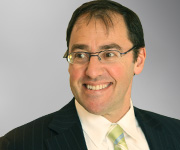SOME people make an entire career out of reviewing restaurants or films. Newspapers, magazines and websites devote regular sections to giving each of the latest movie blockbusters a score out of five while restaurants vie for chef’s hats or Michelin stars.
With the growth of online social communities — Facebook, Twitter, Google+ — and a plethora of forums devoted to shared interests, there is an increasing willingness for people to base their choices on online recommendations and ratings.
Health professionals have not been overlooked in this phenomenon, and there are several scorecard websites specifically targeting medical professionals, with many sites having their origins in the US.
But research* conducted for Avant earlier this year found that 77% of GPs surveyed had not looked at websites that encouraged patients to rate or comment on doctors, and had never checked ratings for either themselves or another doctor. Not only that, but 54% thought it was reasonable for patients to rate their doctors online.
This lack of concern either reflects that those GPs surveyed have confidence in their own skills and a consequent expectation that the majority of reviews will range from innocuous to positive, or a lack of awareness.
A review of a selection of these doctor scorecard websites reveals a large number of highly critical comments. Once alerted to the issue, 60% of the GPs surveyed agreed that they were concerned that online website ratings could negatively affect their practice or reputation.
Adverse comments on websites can discourage prospective and existing patients from consulting a doctor, potentially damage a practitioner’s reputation and inevitably their income. It can also make doctors feel anxious and depressed.
This really is a situation where prevention is much better than the cure. Defamation litigation is rarely an option as it can be expensive and outcomes are uncertain.
The majority of patient complaints made online are not the kind of issues that patients take to the Australian Health Practitioner Regulation Agency. In most cases, patients probably are not even raising these complaints with their medical practitioners or the practice or hospital that employs them.
Frequently cited grievances include not receiving the outcome expected, long waiting times, “rude” or “terse” attitudes and doctors who refuse to provide a particular treatment or medication requested by the patient.
So what can medical professionals do to counter this anonymous but potentially damaging criticism?
Avant endorses the 4E framework, developed by the Bayer Institute for Healthcare Communication, for effective patient communication: develop the patient’s engagement; ensure you demonstrate empathy by showing the patient they have been seen, heard and understood; provide the patient with sufficient education and information about your diagnosis and proposed treatment; and seek to enlist the patient by motivating them to accept your advice.
Working to improve communication with patients is the single most important thing that doctors can do to protect themselves.
Avant has assisted members in the past in drafting a letter to a website host where comments made were manifestly untrue. But it is a very challenging space with respect to what can ultimately be achieved.
Avant has adopted a watching brief in relation to the rapidly changing legislation that governs online communications, and is aware of a recent case in the US, in which a cosmetic surgeon won a US$12 million defamation verdict against a former patient who defamed him on a number of websites.
When a doctor is unfairly targeted, Avant certainly encourages them to contact their medical defence organisation for advice.
Mr David Nathan is Chief Executive Officer of Avant Mutual Group.
* Surveys conducted online from 1–4 February 2012 by Cegedim on behalf of Avant using a sample of 150 Australian doctors from Cegedim’s health care professionals database.
Posted 16 April 2012

 more_vert
more_vert